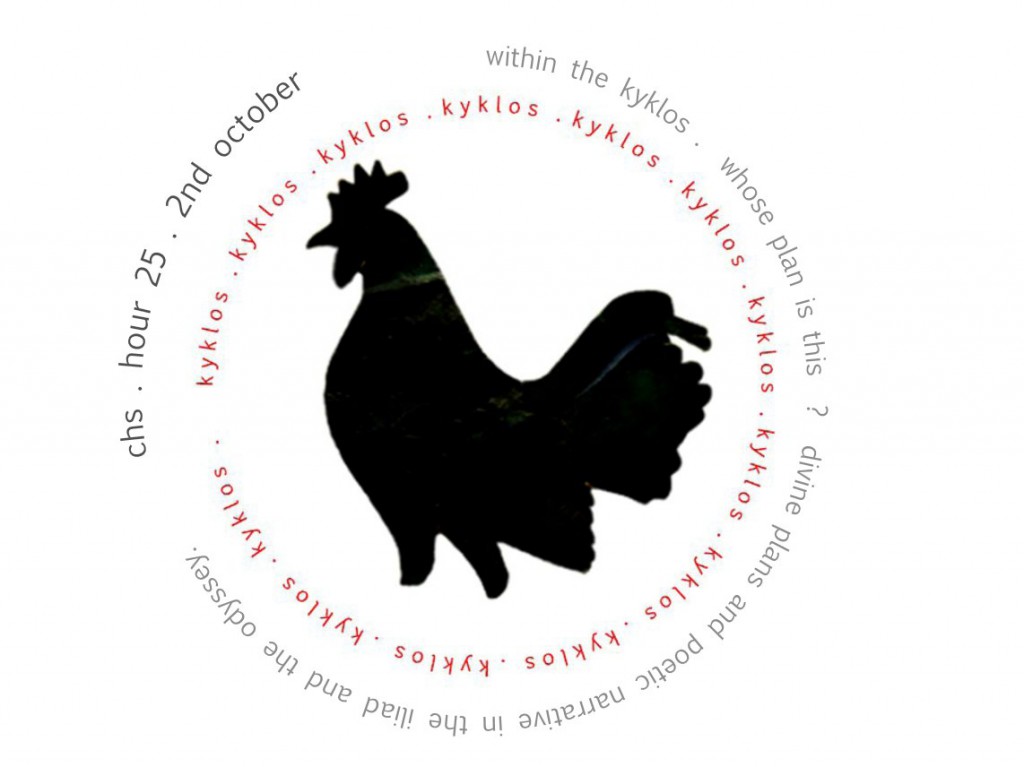We were delighted to welcome back Justin Arft (University of Missouri), and Efimia D. Karakantza (University of Patras, Greece), to continue the conversation started last week in Within the Kyklos ‘Whose Plan is This?’, Divine Plans and Poetic Narrative in the Iliad and Odyssey ‘. The discussion focused on the narrative plan of the Odyssey, with particular attention to the Phaeacians, and included the relationship between the poetic tradition, multiformity, and the reception of a performance; the lineage and role of Arete; the resonance between the female characters; poetic devices in the narrative.
You may watch the discussion below or on our YouTube channel:
If you have comments, questions, or observations about the passages and themes discussed, members can continue also the conversation in the associated Forum thread.
You can watch on our YouTube channel, or in the frame below
Selected references mentioned during the discussion:
- David Bouvier, University of Lausanne, talk given at the Harvard University Mahindra Humanities Center April 2014: “How Much Does the Odyssey Know about Odysseus’ Dark Side?: Odysseus’ Hubris in Demodokos’ Song”
- Jonathan S. Burgess: The Death and Afterlife of Achilles
- Erwin Cook: The Odyssey in Athens: Myths of Cultural Origins
- Lillian E. Doherty: Siren Songs: Gender, Audiences, and Narrators in the Odyssey
- Douglas Frame: Hippota Nestor, Chapter 8 ‘Arete and Nausicaa’
- Bruce Louden: The Odyssey: Structure, Narration, and Meaning
- Gregory Nagy: “Was there a future for the Phaeacians of the Homeric Odyssey? (audio and PDF)
- M. L. West: The Making of the Iliad
Look out for a link to Justin Arft’s forthcoming paper when it is published at Kyklos@
For reference, here is a summary of the previous presentation and the focus passages:
The Odyssey promises an explicit outcome in the form of Zeus and Athena’s divine plan, beneath which also lies a set of traditional expectations for how the hero’s return will proceed. In creative and playful response to what we might presume to know about Odysseus’ return home, the Odyssey displays a “poetics of suspense and delay” within the Phaeacian episode that interrupts and redirects the audience’s expectations, leaving fates open ended or cleverly resolved in retrospect. In the end, our hero is guaranteed his return, but perhaps not on along the anticipated path.
Narrative Plan
Odyssey i 1–21
Odyssey v 29–41
Odyssey v 282–290
Arete’s Delayed Role
Odyssey vi 297–315
Odyssey vii 48–77
Odyssey vii 237–239
Odyssey vii 308–329
Odyssey xi 326–341
Suspended Fate of the Phaeacians
Odyssey viii 550–576
Odyssey xiii 125–187
For further videos please visit the Watch page.
Justin Arft
Justin Arft is a Ph.D. Candidate at the University of Missouri specializing in Homer, archaic Greek poetry, and oral poetics. He has recently written “Immanent Thebes: Traditional Resonance and Narrative Trajectory in the Odyssey,” (2014; Trends in Classics, 6.2) and co-authored a chapter with John Miles Foley (“The Epic Cycle and Oral Tradition”) in The Greek Epic Cycle and its Ancient Reception: A Companion (2015; Cambridge). Justin also holds an M.A. in Religious Studies from the University of Missouri and has taught courses in Religious Studies since 2007 and served as a Graduate Teaching Assistant in Classical Studies since 2010. Justin is the managing editor of Oral Tradition.
